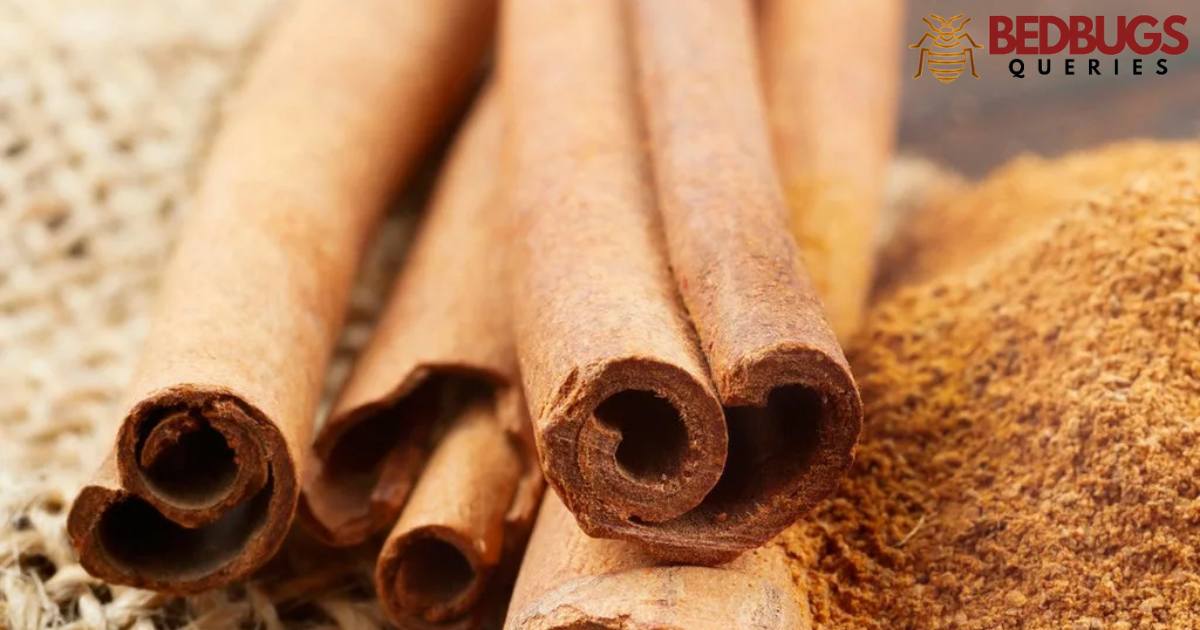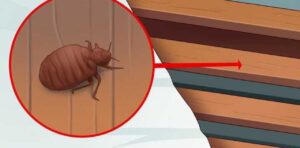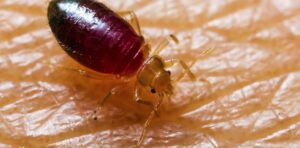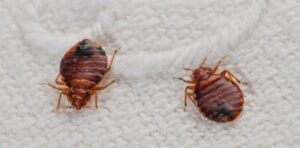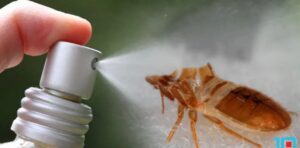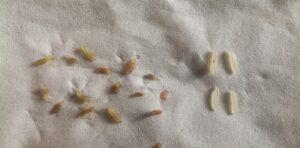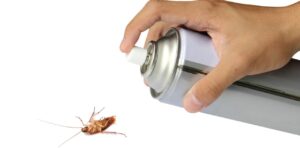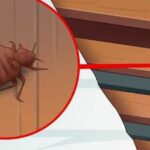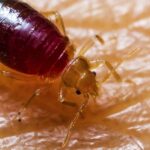Bed bugs are one of the most persistent and unwelcome guests you can find in your home. These tiny, blood-sucking pests can wreak havoc on your sleep and peace of mind. When dealing with a bed bug infestation, many people seek alternatives to chemical pesticides. One intriguing option that has gained attention is cinnamon.
Suppose you had a natural remedy that both repelled these pests and did so in a pleasant, warm manner. Does Cinnamon Kill Bed Bugs? is a question that has piqued the curiosity of many searching for effective and eco-friendly solutions. The potential of cinnamon as a bed bug repellent.
Cinnamon has been hailed as a natural bed bug repellent due to its cinnamaldehyde content, but its effectiveness isn’t always straightforward. Bed bugs are master hiders, and relying solely on cinnamon might not be enough. Delve into using cinnamon for bed bug control, the limitations of this approach, and the importance of integrated pest management for a comprehensive solution.
Exploring Cinnamon’s Bed Bug Killing Potential
Cinnamon is a popular spice known for its warm, sweet aroma and its use in cooking and baking. It also possesses natural compounds that may have insect-repelling properties. There’s no conclusive scientific evidence that cinnamon can completely eradicate a bed bug infestation, it has been considered as a potential deterrent.
The strong and pleasant smell of cinnamon is believed to deter bed bugs. When bed bugs come into contact with cinnamon, they may be repelled by the scent, making it less likely for them to infest your bedding or furniture. This might not eliminate an existing infestation, it could potentially help prevent future infestations.
Cinnamon vs. Bed Bugs
| Aspect | Cinnamon | Bed Bugs |
| Natural Repellent | Yes | No |
| Effective Eradication | Limited | No |
| Application Methods | Sprays, sticks, oils | None (insects) |
| Residue and Odor | Pleasant aroma | Musty odor |
| Safety for Humans | Generally safe | Harmful bites and psychological stress |
| Integrated Pest Management | Part of the strategy | Requires a holistic approach |
When used as part of a bed bug prevention strategy, can be a useful tool. It’s important to note that cinnamon alone may not be a guaranteed solution to eliminate an existing bed bug infestation. If you suspect a bed bug problem in your home, it’s advisable to consult with a professional pest control expert for a thorough inspection and effective treatment.
The Science Behind Cinnamon as a Bed Bug Killer

The effectiveness of cinnamon as a bed bug killer is still a topic of ongoing research. While anecdotal evidence suggests that cinnamon may deter bed bugs due to its scent, there is limited scientific data to support this claim. Bed bugs are notoriously resilient, and it takes more than just a pleasant aroma to eradicate them.
Cinnamon contains compounds such as cinnamaldehyde, which have been studied for their insecticidal properties. The concentrations found in common cinnamon products may not be potent enough to effectively kill or repel bed bugs. Bed bugs can adapt to various environmental factors and repellents over time, which makes them a challenging pest to deal with.
DIY Cinnamon Bed Bug Remedies
If you’re interested in using cinnamon as a part of your bed bug prevention efforts, there are several DIY remedies you can explore:
- Cinnamon Sprays: Create a homemade cinnamon spray by mixing cinnamon essential oil with water. Spritz it on your bedding, mattress, and around the bed’s legs. Remember to test a small, inconspicuous area first to ensure it doesn’t stain your fabrics.
- Cinnamon Sachets: Place cinnamon sticks or sachets in areas where bed bugs might hide, like in your closet, under the bed, or near baseboards. The scent may deter them from settling in these areas.
- Cinnamon-Infused Mattress Covers: Consider using mattress covers infused with cinnamon. These covers are designed to create a barrier between your mattress and bed bugs, potentially preventing them from infesting your bed.
- Cinnamon and Diatomaceous Earth: Diatomaceous earth is a natural powder that can be mixed with cinnamon and sprinkled in areas where bed bugs are suspected. The abrasive nature of diatomaceous earth can harm bed bugs.
It’s important that while these DIY remedies may help prevent bed bug infestations, they may not be effective in eliminating an existing infestation. For confirmed bed bug problems, it’s recommended to consult a professional pest control service.
Cinnamon Oil Natural Bed Bug Repellent
Cinnamon is a common spice found in most kitchens, known for its pleasant aroma and culinary uses. It may surprise you to learn that cinnamon and its essential oil have been touted as natural bed bug repellents.
The compound cinnamaldehyde in cinnamon oil exhibits insecticidal properties, and some believe that Ladybugs Eat Bed Bugs. This compound disrupts the bed bugs’ nervous system and can potentially lead to their demise. It’s important to understand that while cinnamon oil may repel bed bugs, it might not be a foolproof solution for a full-blown infestation.
Using Cinnamon to Control Bed Bugs
Cinnamon is a natural and simple way to help control bed bugs. It has a strong scent that bed bugs don’t like. You can use ground cinnamon or cinnamon sticks. Sprinkle or place them in areas where you suspect bed bugs. The smell can repel them and make it harder for them to infest your home.
To use cinnamon for bed bug control, grind cinnamon sticks into a fine powder. Sprinkle this powder around your bed’s legs or other potential entry points for bed bugs. You can also make small sachets with cinnamon and place them under your mattress or in your closet. While cinnamon can help deter bed bugs, it might not eliminate an existing infestation entirely. It’s helpful to other pest control methods, such as professional extermination or thorough cleaning.
Cinnamon and Bed Bug Infestations
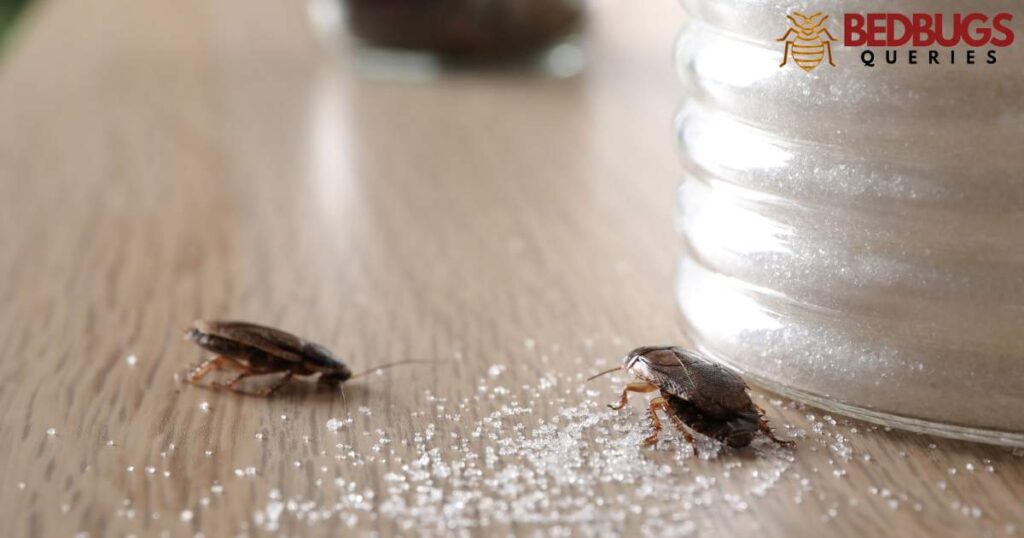
It’s important to note that cinnamon alone, along with the fact that bed bugs smell when you kill them may not be sufficient to completely eradicate a bed bug infestation. Bed bugs are resilient creatures that can hide in the tiniest of cracks and crevices. Cinnamon can potentially deter them, but it may not reach all the hidden spots where bed bugs reside.
For a severe infestation, it’s advisable to seek professional pest control services. These experts have access to a range of methods, including heat treatments pesticides, and vacuuming, to effectively eliminate bed bugs from your home.
Bed Bug Integrated Pest Management with Cinnamon
An integrated pest management (IPM) approach is often the most effective way to deal with bed bug infestations. This approach combines various strategies to reduce and control bed bugs in a comprehensive manner. Cinnamon can be a part of this strategy, but it shouldn’t be the sole solution. Here are some key elements of an integrated pest management plan for bed bugs:
- Identification: Properly identify the presence of bed bugs in your home. This can be done through visual inspections or by hiring a professional.
- Cleaning and Decluttering: Reduce clutter in your home, as it provides hiding spots for bed bugs. Regularly wash and vacuum bedding, carpets, and furniture.
- Sealing Cracks and Crevices: Use cinnamon and other natural repellents to seal potential entry points for bed bugs.
- Heat Treatment: Consider using heat treatment to eliminate bed bugs and their eggs. This method can be highly effective when done correctly.
- Professional Pest Control: For severe infestations, consider hiring a professional pest control service. They have the experience and tools to deal with bed bugs effectively.
- Preventive Measures: After dealing with an infestation, take preventive measures to avoid future bed bug problems, such as using bedbug-proof covers and regularly inspecting your home.
Frequently Asked Question
Can cinnamon alone eliminate a bed bug infestation?
Cinnamon alone may not be sufficient to completely eliminate a bed bug infestation due to the insects’ ability to hide in various places.
How can I use cinnamon to repel bed bugs?
Cinnamon essential oil, sticks, or powder can be used by placing them near potential hiding spots or mixing the oil with water and spraying it as a repellent.
Is cinnamon a part of integrated pest management (IPM) for bed bugs?
Yes, cinnamon can be a component of an IPM strategy, but it should be combined with other methods for effective bed bug control.
Can I solely rely on cinnamon to prevent bed bug infestations?
Relying solely on cinnamon is not recommended for preventing bed bug infestations, as it may not offer comprehensive protection.
When should I consider professional pest control for bed bugs?
Professional pest control services are advisable for severe bed bug infestations that cinnamon or DIY methods cannot effectively address.
Conclusion
Cinnamon has been explored as a natural bed bug repellent due to its cinnamaldehyde content, it may not provide a comprehensive solution for a bed bug infestation. Integrated pest management, combining various strategies, is often the most effective way to address these persistent pests.
If you suspect a bed bug infestation in your home, consider consulting a professional pest control service for the best results. Cinnamon can be a part of your pest management strategy, but it shouldn’t be relied upon as the sole solution.

